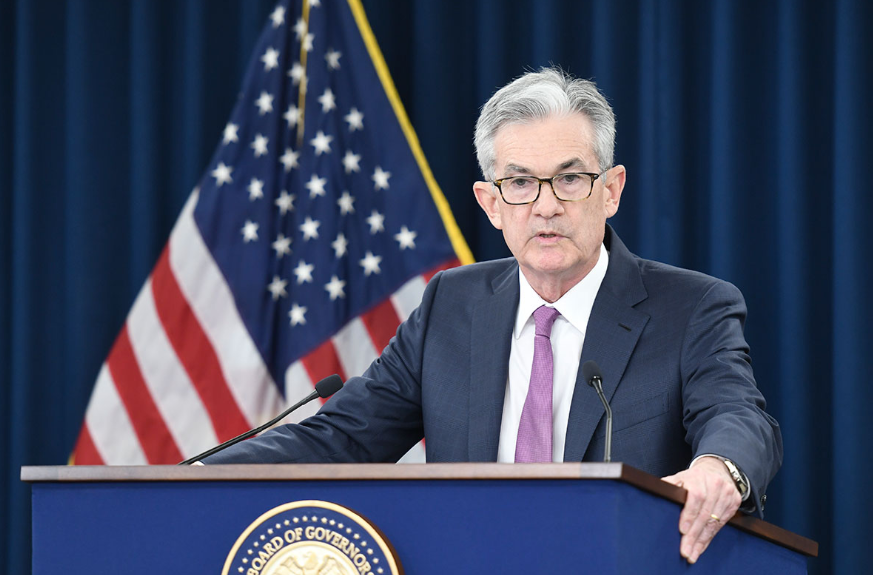by Sonal Desai, Ph.D., Franklin Templeton Investments
The US Federal Reserve surprised markets on Tuesday with an interest-rate cut, but will it restore investor confidence? Franklin Templeton Fixed Income CIO Sonal Desai shares her initial reaction.
The Federal Reserve (Fed) cut interest rates in its benchmark rate by 50 basis points (bps)1 today (to a range of 1% to 1.25%) in an emergency move outside of the regularly scheduled policy meetings. The accompanying Federal Open Market Committee statement said the cut is aimed to offset the evolving risks to economic activity from the coronavirus outbreak but noted that “the fundamentals of the US economy remain strong.” Fed Chair Powell did not directly relate the cut to financial markets, but it is quite clear that the main change over the past week has come to markets.
This is a well-timed move that should underpin financial markets’ confidence. Investors were expecting a response from the US central bank, and the Fed showed itself ready to act promptly and decisively. The Fed’s move also helps offset the disappointment caused by the Group of Seven’s (G7’s) unwillingness to announce a coordinated policy response—though the G7 statement did say that national governments would respond individually.2
An interest-rate cut can have only limited efficacy against the direct negative impact of the coronavirus on economic activity, but its indirect impact via confidence and asset prices could be meaningful.
However, in my view, the sharp correction in equity prices largely reflected the very high starting valuations, and I do not see an easy reversal. The Fed has indicated it remains in play—despite the limited efficacy of monetary policy in the current environment, I would expect to see some more policy moves if underlying data deteriorates.
While markets have largely shrugged off the rate cut in early trading after the announcement, it should have a positive impact on sentiment. Furthermore, in the event that the spread of COVID-19 is contained, the economy will face substantially easier financial conditions.
Important Legal Information
This material is intended to be of general interest only and should not be construed as individual investment advice or a recommendation or solicitation to buy, sell or hold any security or to adopt any investment strategy. It does not constitute legal or tax advice.
The views expressed are those of the investment manager and the comments, opinions and analyses are rendered as of publication date and may change without notice. The information provided in this material is not intended as a complete analysis of every material fact regarding any country, region or market.
Data from third party sources may have been used in the preparation of this material and Franklin Templeton (“FT”) has not independently verified, validated or audited such data. FT accepts no liability whatsoever for any loss arising from use of this information and reliance upon the comments, opinions and analyses in the material is at the sole discretion of the user.
Products, services and information may not be available in all jurisdictions and are offered outside the U.S. by other FT affiliates and/or their distributors as local laws and regulation permits. Please consult your own professional adviser or Franklin Templeton institutional contact for further information on availability of products and services in your jurisdiction.
Issued in the U.S. by Franklin Templeton Distributors, Inc., One Franklin Parkway, San Mateo, California 94403-1906, (800) DIAL BEN/342-5236, franklintempleton.com—Franklin Templeton Distributors, Inc. is the principal distributor of Franklin Templeton’s U.S. registered products, which are not FDIC insured; may lose value; and are not bank guaranteed and are available only in jurisdictions where an offer or solicitation of such products is permitted under applicable laws and regulation.
What Are the Risks?
All investments involve risks, including possible loss of principal. The value of investments can go down as well as up, and investors may not get back the full amount invested. Bond prices generally move in the opposite direction of interest rates. Thus, as prices of bonds in an investment portfolio adjust to a rise in interest rates, the value of the portfolio may decline. Investments in foreign securities involve special risks including currency fluctuations, economic instability and political developments. Special risks are associated with foreign investing, including currency fluctuations, economic instability and political developments; investments in emerging markets involve heightened risks related to the same factors. Actively managed strategies could experience losses if the investment manager’s judgment about markets, interest rates or the attractiveness, relative values, liquidity or potential appreciation of particular investments made for a portfolio, proves to be incorrect. There can be no guarantee that an investment manager’s investment techniques or decisions will produce the desired results.
__________________________________
1. A basis point is a unit of measurement. One basis point is equal to 0.01%.
2. The Group of Seven (G7) is an international intergovernmental economic organization made up of seven advanced economies: Canada, France, Germany, Italy, Japan, the United Kingdom and the United States.
This post was first published at the official blog of Franklin Templeton Investments.










